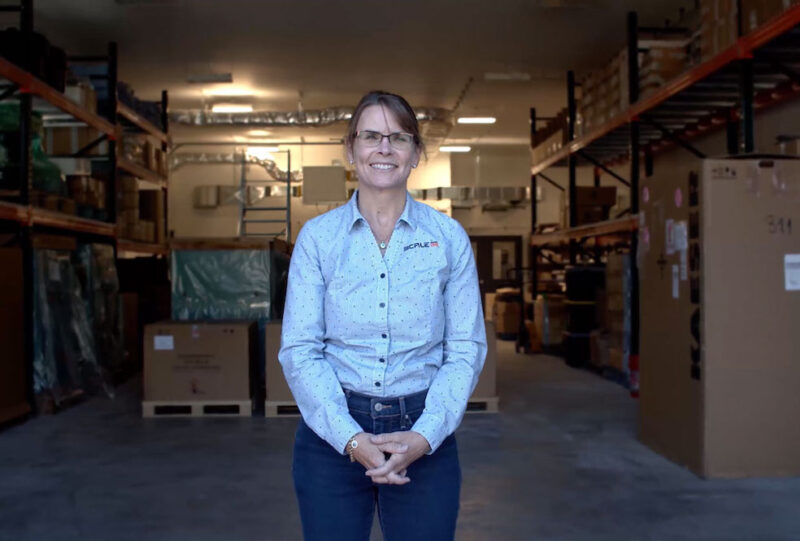Vancouver Island ready to grow with salmon farmers
Community support grows for BC’s salmon farmers as mayors and businesses call for their voices to be heard at the aquaculture-decision making tables.
By Fabian Dawson
SeaWestNews
Four Vancouver Island mayors and scores of businesses have thrown their support behind BC salmon farmers, urging both Ottawa and Victoria to let them have a voice on the future of aquaculture in BC.
Fed up with the false messaging by anti-fish farm activists, over 200 other individuals have also sent letters to Bernadette Jordan, Minister of Fisheries and Oceans Canada urging her to support the newly unveiled $1.4 billion pandemic recovery plan by BC salmon farmers, which promises the creation of 10,000 new jobs in rural coastal communities.
The growing show of support comes as consultations are underway on the renewal of fish farm licences in the Discovery Islands and for the creation of an overall plan to transition the BC aquaculture industry away from open-net farming.
Yesterday, the mayors of Port Hardy, Campbell River, Gold River and Port McNeill, all aquaculture-dependent communities on Vancouver Island, sent a letter to Minister Jordan saying they believe that both the wild and farmed salmon industries can thrive in BC’s oceans.
“We support both the fish farming industry and the wild salmon recovery process. We strongly believe these activities can safely co-exist in the same ocean. Together we must work on an Ocean / Land Use Plan that will accomplish these objectives. The voice of local government is critical to the successful resolution of these discussions and ultimately the final decision,” the mayors said.
“The potential impact of the Discovery Island Fish Farm License decision and consultations about ‘transitioning’ the salmon farming industry could have far-reaching consequences for all of our communities.”
Most of the juvenile Sockeye that head to sea from the Fraser River travel through the waters around Discovery Islands where about 18 salmon farms operate.
The Federal government is now in consultations with the Holmalco, Klahoose, Komoks, Kwiakah, Tla’amin, We Wai Kai (Cape Mudge) and Wei Wai Kum (Campbell River) First Nations before making a decision on whether to renew aquaculture licenses in the area, by the end of the year.
The consultations have been fired up by the rhetoric of anti-fish farm activists, who have refused to believe any science that is contrary to their stance that fish farms are responsible for the decline of wild stocks in British Columbia.
That includes the nine recent scientific studies generated through the Canadian Science Advisory Secretariat (CSAS) peer-review process that found farmed salmon pose minimal risks to migrating wild stocks around the Discovery Islands.
The anti-fish farming activists also want to oust salmon farmers from BC’s waters, who are supporting 6,600 jobs, and replace them with land-based operations by 2025, despite numerous studies showing that such a move would increase Greenhouse Gas (GhG) substantially.
It will also run counter to BC Premier John Horgan’s pledge to make the province a low-carbon supplier of choice for food and energy.
In BC alone, moving the current production of Atlantic salmon to land based tanks will result in an increase 22,881,000 kgs of Greenhouse Gas (GhG) emissions. That is equivalent to the energy needed per year to power a population of 52,200 or a city the size of North Vancouver.
In addition, raising fish on land will move the industry away from coastal communities to bigger markets in the US and make BC raised salmon, which is the provinces top seafood export, valued at about $550 million annually, much more expensive.
Among those who have written letters and posted messages on social media lending support to BC salmon farmers is Thomas Gannon of AquaTrans Distributors, a trucking company.
“I have grown up surrounded by the salmon farming industry in BC. The stigmas and false claims associated with the industry have driven away support for years, ultimately hindering the benefits the industry could bring to the economy and surrounding communities…Unlike many other food industries, ocean-based salmon farming is on a fast and clear track to complete sustainability.”
“As a Vancouver Islander, nothing means more to me than the ocean, and the wild salmon that live in it,” said Katie Maximick of Grieg Seafood, in her letter.
“That’s why I truly believe in farming salmon in our oceans, and its potential to lead the Blue Economy in Canada while reducing pressure on wild fish stocks and working side-by-side with coastal First Nations. There is a path forward for all of us if we work together,” she wrote.
Pauline Stevenson, president of Excel Career College in Courtenay said her institution has trained over 300 aquaculture technicians, nearly all of whom found jobs with local fish farmers.
“Aquaculture is absolutely essential for the well-being of Vancouver Island and the people who live and work here,” she said.
Genny West, the general manager of ScaleAQ North America, said if it was not for salmon farming there would be a lot of people out of work on Vancouver Island.
“People don’t know how innovative the industry is…they are environmentalists…if they don’t have good water quality or if they are polluting the waters around their farms they are out of business,” she said in a video message.
The messages of community support follow a report by The Campbell River Business Recovery Taskforce which said salmon farming companies employ 572 people in the community, affording salaries and wages of about $14.91 million annually while purchasing supplies and services from 680 vendors in the region.
“The attractiveness of Campbell River and Northern Vancouver Island, must not be put at risk by lack of awareness or other narratives put forth by those who have no stake in this community,” stated the independent report, stressing that politicians need to listen to the locals about aquaculture, tourism and forestry, not only to the activists.
(Image courtesy of BCSFA shows Genny West, the general manager of ScaleAQ North America in Campbell River)

